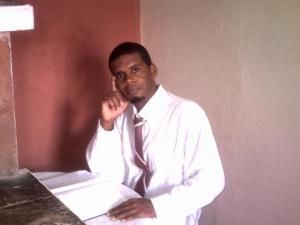On July 18th, 2017, Mr. C. Énix Berrio Sardá was supposed to leave Cuba on a Copa Airlines flight bound for South America to participate in an academic workshop.
Upon arrival at Terminal 3 of the José Martí International Airport in Havana, Cuba, Énix checked his luggage along with other citizens going to the same program. However, when he arrived at the immigration window, he was denied approval to leave the country in a clear violation of the immigration law enforced in the nation and written in the Constitution of the Republic. Also, it’s worthwhile to mention that freedom of travel is a fundamental human right recognized in the International Convention on Human Rights, of which Cuba is a signatory.

His luggage was then held for almost two hours before being released back to him. Énix was then sent from the customs office to Unit 4 of the Havana police because, according to the explanation, he was not prohibited, but instead, restricted from traveling. It would seem that the political police now specialize in semantics.
The fact is that with one word, Énix could not leave the country, and neither immigration officials nor the police wants to say whom it was that gave the order.
This was not the first time that Cuban authorities have violated laws to apply a repressive measure, and many other Cuban citizens face similar or worse situations. But why is this measure so arbitrary?
First, it is because until very recently, Cuban citizens could not leave the country freely at all. The current communist Constitution claims to guarantee the right of all Cuban citizens to use the ports and airports and it recognizes the freedom of movement of those born in the Caribbean nation.
Second, it is because it violates the current immigration law, which only prohibits the exit from the country of people with important state or national security responsibilities or citizens with pending criminal proceedings.
The police never visited Énix. No one imposed a fine on him or took him to trial to charge him with a crime to prevent him, like 72 hours before, from leaving the country. His home was not surrounded by dogs or the police. No one intercepted him in the middle of the street. Énix only knew that he could not leave the country as his luggage was being taken to the plane. Énix has no criminal record. He has never caused a public scandal. He has never cast a stone, except when he was a child, which was quite a few years before he obtained two university degrees, a master’s degree, and two doctoral candidacies in science.
The only crime Énix committed was thinking. He mastered the statistical figures of a paralyzed country. He knows the bowels of Cuban society. He has analyzed, with multidisciplinary studies, the different phenomena that muddle the life of the nation.
Énix knows what public accounts do not say: that Afro-Cubans aren’t represented as much in school, as they are in street fights, that young people can’t afford housing, that the LGBT community’s needs are not met, and that a new country needs to include those that, today, do not speak out.
This is why Énix is dangerous. This is why this act is cynical and fraudulent. This is why they can’t make up a crime and take him to prison.
Events like this only show that the repressive regime is the same for all who think differently in Cuba.

Leave a comment